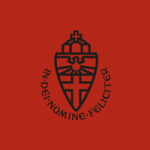项目介绍
What citizens believe to be true and whether they trust science increasingly depend on where they stand on the political spectrum. As a result, political opponents are often divided not only in their attitudes, but also in their beliefs about reality. Leftist and rightist voters, for instance, have different perceptions of the causes of climate change, the magnitude of income inequality, and the number of immigrants in their country. Does this pique your interest? If so, this position may be for you!
We are recruiting a team that will examine how this ‘factual belief polarization’ influences public opinion and, for example, whether it contributes to broader polarisation. Moreover, we will examine the increasing politicisation of trust in science, focusing on public perceptions of bias and how citizens view different types of policy advocacy by scientists. Within this broader team, two subprojects will be carried out by postdoctoral researchers, who will conduct surveys and experiments and author or co-author a number of manuscripts for publication in international scientific journals. You will also participate in academic conferences.
Project 1: Better survey measures for factual beliefs
There is currently a lack of well-validated survey measures for factual beliefs. For fundamental questions such as whether people overestimate the magnitude of the immigrant population, our current knowledge relies on insufficiently validated items. Existing survey items have, for example, asked respondents about percentages, ratios, visual representations, or exemplars. Supervised by Dr Roderik Rekker, you will apply measurement models and survey experiments to examine whether some questions or response formats are easier to understand for survey respondents than others, and how such measurement decisions affect substantive conclusions about factual belief polarisation. This project will yield better validated survey items and articles in international peer-reviewed journals.
Project 2: The politicisation of trust in science, bias perceptions, and advocacy by scientists
Public trust in science is becoming increasingly politicised. Conservative and far-right voters, in particular, often express lower levels of trust in science. One possible reason for this politicisation is that citizens do not always accept science as a politically neutral epistemic authority. For example, sociologists are often seen as ‘left-leaning’, while economists are perceived as ‘right-leaning’. These perceptions of political bias are associated with distrust in the respective scientific fields. Together with Dr Roderik Rekker, Dr Erika van Elsas, and Dr Christel van Eck, you will use surveys and experiments to investigate where these perceptions originate and what their consequences are. In particular, the project will examine how citizens view different forms of policy advocacy by scientists, and if and when advocacy can contribute to perceptions of bias and public distrust.
The postdoctoral positions involve 20% teaching duties.
Profile
Required:
- You must have completed a PhD degree before the starting date in a relevant discipline, such as political science, communication science, science communication, social psychology, psychological methods, or survey methodology.
- You have a good command of statistical research methods, particularly regarding surveys and survey experiments.
- You have experience with publishing research in international scientific journals.
- You are interested in working in an interdisciplinary setting and are able to acquire viewpoints from various disciplines in the social sciences.
- You can work both independently and in a team.
- You are willing to take on a limited teaching load in our undergraduate political science programme.
Desirables:
- You have experience conducting research on polarization, misperceptions, trust in science, or another related topic.
- You are skilled in the design and technical execution of survey experiments, including (for project 1) experiments with advanced visual stimuli and response formats.
- For project 1, experience with measurement models and/or survey design is highly advantageous.
- You have experience in teaching and supervising undergraduate student.
- You have a good command of the English language.
- Regular presence in Nijmegen is expected. If you live abroad, we are open to discussing whether this can be arranged without relocating to the Netherlands.
We offer
- We will give you a temporary employment contract of 2 years.
- Your salary starts at € 4,227gross per month (salary scale 10, step 5) and progresses further within salary scale 10. The amounts in the scale are based on a 38-hour working week. You will receive an 8% holiday allowance and an 8,3% end-of-year bonus.
- You will receive an 8% holiday allowance and an 8,3% end-of-year bonus.
- We offer Dual Career Coaching. The Dual Career Coaching assists your partner via support, tools, and resources to improve their chances of independently finding employment in the Netherlands.
- You will receive extra days off. With full-time employment, you can choose between 30 or 41 days of annual leave instead of the statutory 20.
Additional employment conditions
Work and science require good employment practices. Radboud University’s primary and secondary employment conditions reflect this. You can make arrangements for the best possible work-life balance with flexible working hours, various leave arrangements and working from home. You are also able to compose part of your employment conditions yourself. For example, exchange income for extra leave days and receive a reimbursement for your sports membership. In addition, you receive a 34% discount on the sports and cultural activities at Radboud University as an employee. And, of course, we offer a good pension plan. We also give you plenty of room and responsibility to develop your talents and realise your ambitions. Therefore, we provide various training and development schemes.
We are
The Department of Political Science examines the complexity and interconnectedness of contemporary politics with a focus on legitimacy and institutional change. The department consists of two chair groups: Empirical Political Science and International Relations. Jointly, they offer Bachelor’s and Master’s degree programmes in Political Science.
You will be based within the chair group of Empirical Political Science. This chair group has particular strengths in comparative politics, political theory, as well as quantitative and qualitative methodology. Major research topics include populism, electoral behaviour, public opinion, and labour movements, as well as the moral legitimacy of institutions and policies. Many of its individual members contribute to more than one of these subjects, and are active in interdisciplinary Hotspots and research collaborations across the Nijmegen School of Management and beyond.
Nijmegen School of Management
At Nijmegen School of Management, one of the seven faculties within Radboud University in the Netherlands, we have a clear aim: we enable students, institutions and companies, social actors, and governments to play their part in the transformations towards a sustainable society through high-quality scientific research and education. With more than 4,500 curious students and more than 450 dedicated employees, we form a dynamic community.
Our mission ‘Responsible governance for sustainable societies’ is driven by the ambition to make a difference in the world. At Nijmegen School of Management, we understand management as a broad concept referring to the collective and organised pursuit (responsible governance) of a better world (sustainable societies). We study and teach management at the level of public and private organisations. In this context, we examine how to balance economic, ecological, and social values in a sustainable way. This aim is in line with Radboud University’s mission to contribute through teaching and research to a ‘free, healthy world with equal opportunities for all’.
At Nijmegen School of Management, academic research and teaching are carried out in following areas: Business Administration, Economics and Business Economics, Political Science, Public Administration, Human Geography, Spatial Planning, and Environment. Our approach to teaching and research is evolving from multidisciplinarity, where we study societal challenges from different disciplinary backgrounds, to interdisciplinarity (integrating disciplinary perspectives for synergy) and transdisciplinarity (involving non-academic stakeholders).
The United Nations’ Sustainable Development Goals (SDGs) are an important source of inspiration for our work. Our work focuses on the themes Social economy, Resilient society and Sustainable environment. At Nijmegen School of Management, we have our eyes on the world of the future, in which sustainability and responsibility are central values. Together we are creating a better world for everyone.
Radboud University
At Radboud University, we aim to make an impact through our work. We achieve this by conducting groundbreaking research, providing high-quality education, offering excellent support, and fostering collaborations within and outside the university. In doing so, we contribute indispensably to a healthy, free world with equal opportunities for all. To accomplish this, we need even more colleagues who, based on their expertise, are willing to search for answers. We advocate for an inclusive community and welcome employees with diverse backgrounds, cultures, and perspectives. Will you also contribute to making the world a little better? You have a part to play.
If you want to learn more about working at Radboud University, follow our Instagram account and read stories from our colleagues.
相关项目推荐
KD博士实时收录全球顶尖院校的博士项目,总有一个项目等着你!





